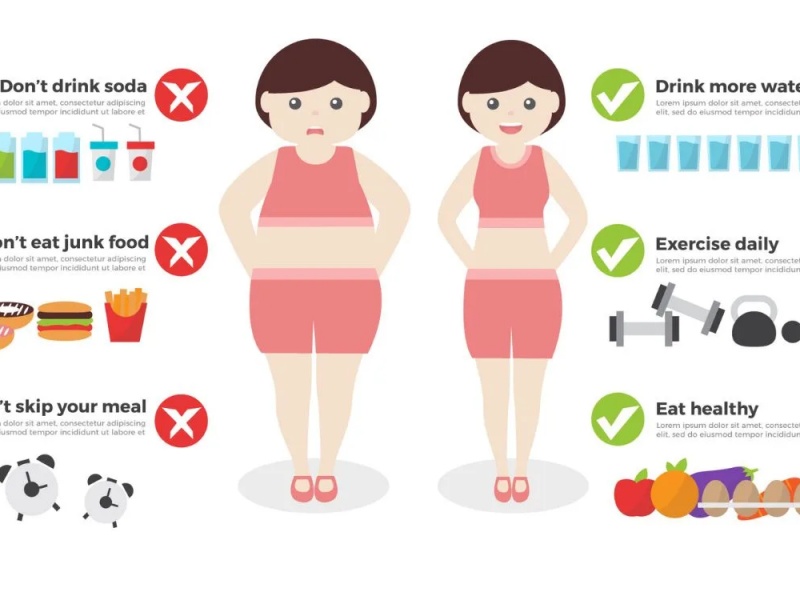How To Achieve Sustainable Weight Loss Through Healthy Habits
Understanding Weight Loss
1. Caloric Deficit: The fundamental principle of weight loss is creating a caloric deficit, which means consuming fewer calories than your body expends. This can be achieved by reducing calorie intake, increasing physical activity, or a combination of both.
2. Nutrient-Dense Foods: Focus on incorporating nutrient-dense foods into your diet. These include fruits, vegetables, whole grains, lean proteins, and healthy fats. These foods not only provide essential nutrients but also help you feel fuller for longer, reducing the temptation to overeat.

Effective Strategies for Weight Loss
1. Set Realistic Goals: Setting achievable and specific goals is crucial for long-term success. Instead of aiming to lose a significant amount of weight quickly, aim for a gradual loss of 1-2 pounds per week. This approach is more sustainable and healthier.
2. Monitor Your Progress: Keeping track of your food intake and physical activity can help you stay accountable. Use apps or journals to record your meals, exercise, and weight changes. This awareness can motivate you to stay on track.
3. Incorporate Regular Exercise: Aim for at least 150 minutes of moderate aerobic activity each week, such as walking, cycling, or swimming. Additionally, include strength training exercises at least twice a week to build muscle, which can boost your metabolism.

Building Healthy Habits
1. Stay Hydrated: Drinking plenty of water is essential for weight loss. Sometimes, our bodies confuse thirst with hunger, leading to unnecessary snacking. Aim for at least 8 cups of water daily, and consider drinking a glass before meals to help control appetite.
2. Mindful Eating: Practice mindful eating by slowing down and savoring each bite. Pay attention to hunger cues and eat until you are satisfied, not stuffed. This practice can help prevent overeating and promote a healthier relationship with food.
3. Get Enough Sleep: Sleep plays a significant role in weight management. Lack of sleep can disrupt hormones that regulate appetite, leading to increased cravings and overeating. Aim for 7-9 hours of quality sleep each night to support your weight loss efforts.
Conclusion
Achieving sustainable weight loss is a journey that requires patience, commitment, and healthy habits. By understanding the principles of weight loss, setting realistic goals, and incorporating nutritious foods and regular exercise into your routine, you can create a balanced lifestyle that promotes long-term success. Remember, the key to effective weight loss is not just about losing pounds but also about fostering a healthier, happier you. Embrace the process, and enjoy the positive changes that come with it!
